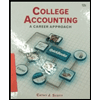omplete the accounting cycle. For the past several years, Jolene Upton has operated a part-time consulting business from her home. As of July 1, 2019, Jolene decided to move to rented quarters and to operate the business, which was to be known as Gourmet Consulting, on a full-time basis. Gourmet Consulting entered into the following transactions during July: July 1. The following assets were received from Jolene Upton: cash, $19,000; accounts receivable, $22,300; supplies, $3,800; and office equipment, $8,900. There were no liabilities received. 1. Paid three months’ rent on a lease rental contract, $6,000. 2. Paid the premiums on property and casualty insurance policies, $4,500. 4. Received cash from clients as an advance payment for services to be provided and recorded it as unearned fees, $8,000. 5. Purchased additional office equipment on account from Office Necessities Co., $5,100. 6. Received cash from clients on account, $12,750. 10. Paid cash for a newspaper advertisement, $500. 12. Paid Office Necessities Co. for part of the debt incurred on July 5, $3,000. 12. Provided services on account for the period July 1–12, $14,200. 14. Paid receptionist for two weeks’ salary, $1,500. Record the following transactions on Page 2 of the journal: 17. Received cash from cash clients for fees earned during the period July 1–17, $10,400. 18. Paid cash for supplies, $1,000. 20. Provided services on account for the period July 13–20, $9,000. 24. Received cash from cash clients for fees earned for the period July 17–24, $8,500. 26. Received cash from clients on account, $12,000. 27. Paid receptionist for two weeks’ salary, $1,500. 29. Paid telephone bill for July, $325. 31. Paid electricity bill for July, $675. 31. Received cash from cash clients for fees earned for the period July 25–31, $7,100. 31. Provided services on account for the remainder of July, $5,500. 31. Jolene withdrew $20,000 for personal use Instructions 1. Journalize each transaction in a two-column journal starting on Page 1, referring to the following chart of accounts in selecting the accounts to be debited and credited. (Do not insert the account numbers in the journal at this time.) 11 Cash 31 Jolene Upton, Capital 12 Accounts Receivable 32 Jolene Upton, Drawing 14 Supplies 41 Fees Earned 15 Prepaid Rent 51 Salary Expense 16 Prepaid Insurance 52 Rent Expense 18 Office Equipment 53 Supplies Expense 19 Accumulated Depreciation—Office Equipment 54 Depreciation Expense 21 Accounts Payable 55 Insurance Expense 22 Salaries Payable 59 Miscellaneous Expense 23 Unearned Fees 2. Post the journal to a ledger of four-column accounts. 3. Prepare an unadjusted trial balance.
Complete the accounting cycle. For the past several years, Jolene Upton has operated a part-time consulting business
from her home. As of July 1, 2019, Jolene decided to move to rented quarters and to operate the business, which was to be known as Gourmet Consulting, on a full-time basis. Gourmet Consulting entered into the following transactions during July:
July 1. The following assets were received from Jolene Upton: cash, $19,000;
1. Paid three months’ rent on a lease rental contract, $6,000.
2. Paid the premiums on property and casualty insurance policies, $4,500.
4. Received cash from clients as an advance payment for services to be provided
and recorded it as unearned fees, $8,000.
5. Purchased additional office equipment on account from Office Necessities Co., $5,100.
6. Received cash from clients on account, $12,750.
10. Paid cash for a newspaper advertisement, $500.
12. Paid Office Necessities Co. for part of the debt incurred on July 5, $3,000.
12. Provided services on account for the period July 1–12, $14,200.
14. Paid receptionist for two weeks’ salary, $1,500.
Record the following transactions on Page 2 of the journal:
17. Received cash from cash clients for fees earned during the period
July 1–17, $10,400.
18. Paid cash for supplies, $1,000.
20. Provided services on account for the period July 13–20, $9,000.
24. Received cash from cash clients for fees earned for the period July 17–24, $8,500.
26. Received cash from clients on account, $12,000.
27. Paid receptionist for two weeks’ salary, $1,500.
29. Paid telephone bill for July, $325.
31. Paid electricity bill for July, $675.
31. Received cash from cash clients for fees earned for the period July 25–31, $7,100.
31. Provided services on account for the remainder of July, $5,500.
31. Jolene withdrew $20,000 for personal use
Instructions
1. Journalize each transaction in a two-column journal starting on Page 1, referring to
the following chart of accounts in selecting the accounts to be debited and credited.
(Do not insert the account numbers in the journal at this time.)
11 Cash 31 Jolene Upton, Capital
12 Accounts Receivable 32 Jolene Upton, Drawing
14 Supplies 41 Fees Earned
15 Prepaid Rent 51 Salary Expense
16 Prepaid Insurance 52 Rent Expense
18 Office Equipment 53 Supplies Expense
19
21 Accounts Payable 55 Insurance Expense
22 Salaries Payable 59 Miscellaneous Expense
23 Unearned Fees
2. Post the journal to a ledger of four-column accounts.
3. Prepare an unadjusted
4. At the end of July, the following adjustment data were assembled. Analyze and use
these data to complete parts (5) and (6).
a. Insurance expired during July is $375.
b. Supplies on hand on July 31 are $2,850.
c. Depreciation of office equipment for July is $400.
d. Accrued receptionist salary on July 31 is $140.
e. Rent expired during July is $2,000.
f. Unearned fees on July 31 are $3,000.
5. (Optional) Enter the unadjusted trial balance on an end-of-period spreadsheet and
complete the spreadsheet.
6. Journalize and post the
the journal.
7. Prepare an adjusted trial balance.
8. Prepare an income statement, a statement of owner’s equity, and a balance sheet.
9. Prepare and
journal. Indicate closed accounts by inserting a line in both Balance columns opposite
the closing entry.
10. Prepare a post-closing trial balance.
Trending now
This is a popular solution!
Step by step
Solved in 3 steps with 5 images









